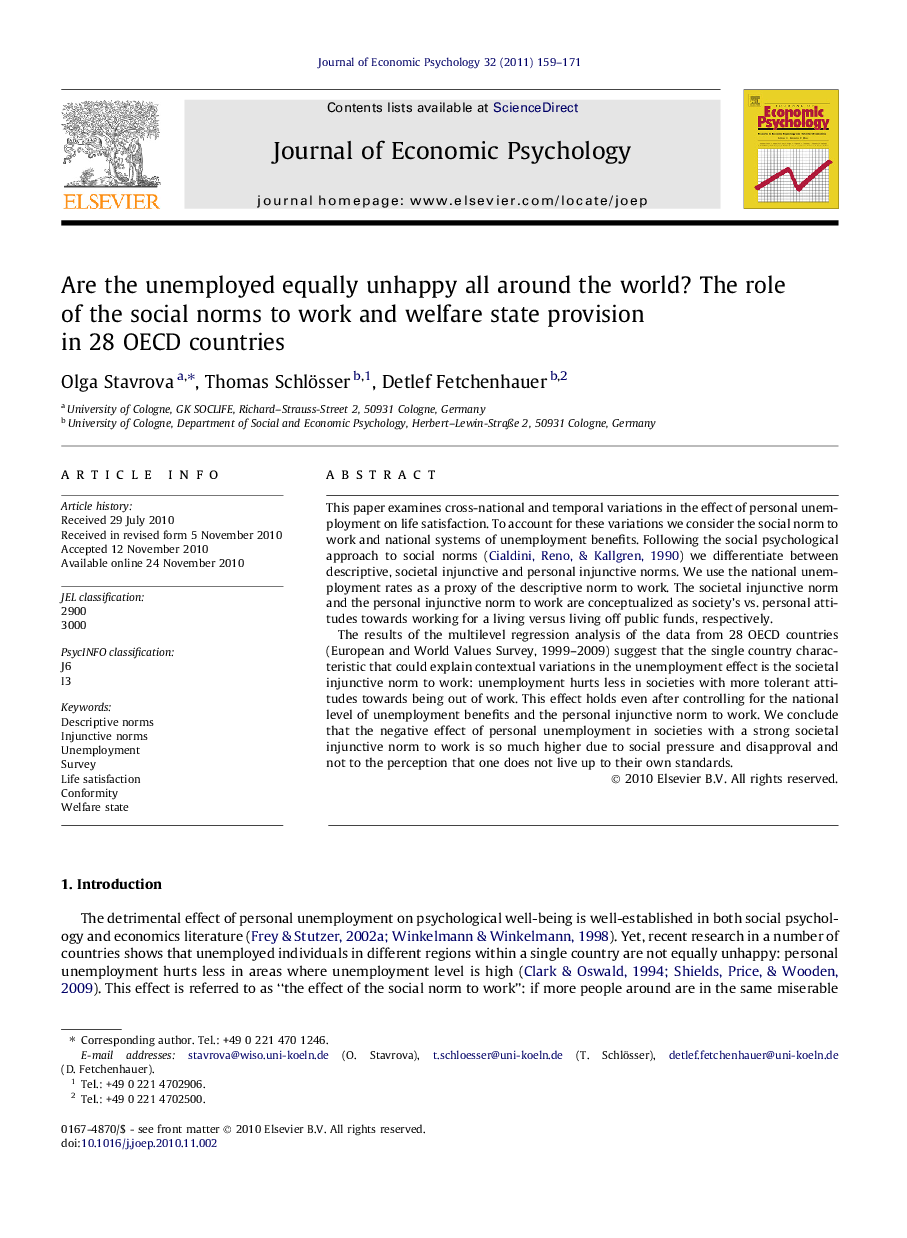| کد مقاله | کد نشریه | سال انتشار | مقاله انگلیسی | نسخه تمام متن |
|---|---|---|---|---|
| 885022 | 912652 | 2011 | 13 صفحه PDF | دانلود رایگان |

This paper examines cross-national and temporal variations in the effect of personal unemployment on life satisfaction. To account for these variations we consider the social norm to work and national systems of unemployment benefits. Following the social psychological approach to social norms (Cialdini, Reno, & Kallgren, 1990) we differentiate between descriptive, societal injunctive and personal injunctive norms. We use the national unemployment rates as a proxy of the descriptive norm to work. The societal injunctive norm and the personal injunctive norm to work are conceptualized as society’s vs. personal attitudes towards working for a living versus living off public funds, respectively.The results of the multilevel regression analysis of the data from 28 OECD countries (European and World Values Survey, 1999–2009) suggest that the single country characteristic that could explain contextual variations in the unemployment effect is the societal injunctive norm to work: unemployment hurts less in societies with more tolerant attitudes towards being out of work. This effect holds even after controlling for the national level of unemployment benefits and the personal injunctive norm to work. We conclude that the negative effect of personal unemployment in societies with a strong societal injunctive norm to work is so much higher due to social pressure and disapproval and not to the perception that one does not live up to their own standards.
Research highlights
► The life satisfaction gap between employed and unemployed persons varies across countries.
► It is larger in countries with a strong injunctive norm to work. It does not depend on unemployment rates, benefits, and the personal norm to work.
► The unemployment effect is explained by social pressure and not by self-punishment.
Journal: Journal of Economic Psychology - Volume 32, Issue 1, February 2011, Pages 159–171